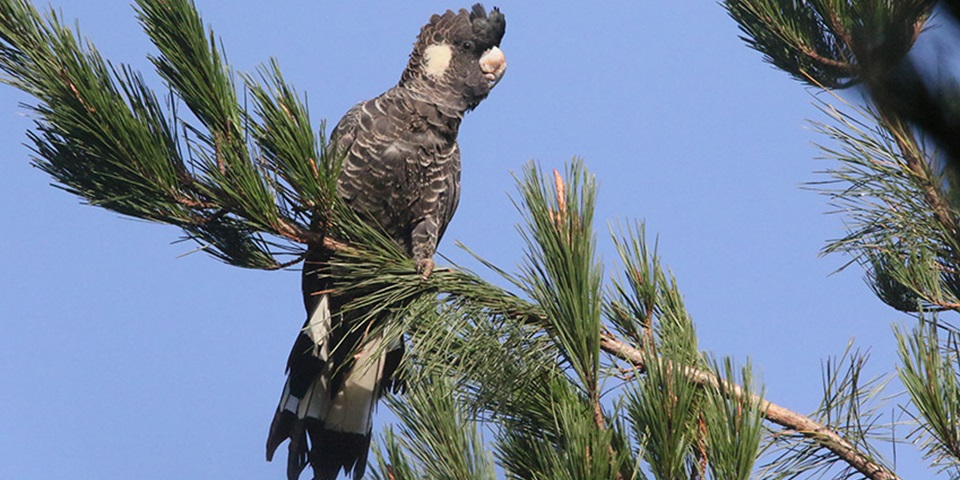News
Murdoch’s top achievements in wildlife and conservation during 2022

Murdoch University has long championed wildlife and conservation.
One of our four institutes is named after one of Australia’s most famous conservationists, Harry Butler. Our wildlife and conservation researchers help us to save species, grow habitats and keep Australia's biodiversity secure.
In 2022, stories from our researchers made their way around the globe and will continue to do so for many years to come. We’ve put together a collection of several stories to wrap up the remarkable discoveries and opportunities from this year.
Saving species
Murdoch University’s Black Cockatoo Conservation Management Project will conduct ground-breaking health and ecological research on Western Australia’s iconic black cockatoos thanks to more than $1.5 million in funding from the State Government over five years. The spotlight was on Murdoch University’s black cockatoo researchers recently at the world premiere of the documentary Black Cockatoo Crisis.
With the help of citizen scientists, 61 baby southwestern snake-necked turtles were released into Bibra Lake as part of an important incubation project by Murdoch University researchers aiming to bump up waning numbers.
The Keep Carnaby’s Flying - Ngoolarks Forever project received more than $1.5 million to work with a range of community stakeholders over two years to help save Western Australia’s Carnaby’s cockatoos from extinction.
Murdoch University undergraduate students, alongside Project Hiu, are paving the way for a more sustainable future for sharks, and humans in Indonesia. The students designed business proposals and initiatives aimed at protecting sharks by creating profitable, future-proof income streams for shark fisherman, and benefiting the wider community.
A Murdoch PhD student is investigating ways to provide artificial shelters for wildlife to keep them safe from predators while they wait for their homes in disturbed landscapes to be restored.
Scientists from Murdoch University and the Marine Megafauna Foundation reported large numbers of manta rays in the waters of Komodo National Park in Indonesia, suggesting the area may hold the key to regional recovery of the threatened species.
Researchers from Murdoch University’s Harry Butler Institute conducted a study in winter of 2022 to understand how the disease sarcoptic mange is manifesting in quenda in Roleystone urban and bushland sites.
Scientists from Harry Butler received a new grant to understand movement and spread of ticks to limit them from wreaking havoc on Western Australia’s cattle — before time ticks away.
The Centre for Sustainable Aquatic Ecosystems at the Harry Butler Institute warns community to think twice before flushing pet fish into waterways, as they can threaten the livelihood of native fauna.
New discoveries
Two soccer-mad arachnologists from Murdoch University’s Harry Butler Institute have named a new spider genus after their favourite game, Socca, and paid tribute to Australian sporting legend, the late Johnny Warren, with a new species in his honour.
Researchers at the Centre for Sustainable Aquatic Ecosystems at the Harry Butler Institute worked with a global cross-disciplinary team of scientists developed the first comprehensive classification of the world’s ecosystems across land, rivers and wetlands and seas.
Researchers revealed how using land for agriculture and livestock, with associated water troughs and dingo control, have benefitted kangaroos in Western Australia.
Murdoch University marine biologist researchers discovered evidence of male alliance in Indo-Pacific bottlenose dolphins, the first time such behaviour has been recorded outside of Western Australia's famed Shark Bay.
Awards and opportunities
The Murdoch University Farm Animal Welfare team received the Agriculture Award at the 2022 RSPCA WA Animal Welfare awards ceremony for their work that aims to positively influence the welfare of animals in agriculture.
Murdoch alumnus, Dr James Haberfield, found there was a gap in the services available for exotic pets when he graduated and now, 10 years later, he has his own veterinary practice and TV show called Bizarre Pet Vets.
Eight Murdoch University students are travelling to Bali, Indonesia, to garner hands-on experience working with local non-government, not-for-profit and government organisations in animal welfare.
News
Murdoch’s top achievements in wildlife and conservation during 2022
Posted on
Topics